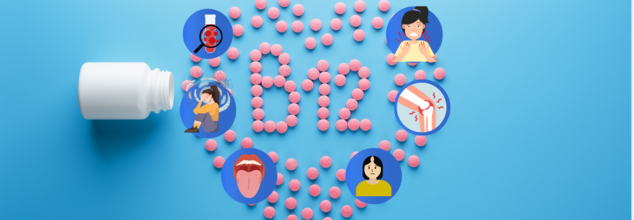
Image Credits: Canva
Staring At Screens All Day? Ophthalmologists Reveal Why You Need 'Special' Glasses
How close is your laptop or phone screen to you right now? Just few inches away, right? And if you're like most people, chances are you've spent more than nine hours being glued to screens today. From office emails to relentless social media browsing and late-night Netflix marathons, screen time is now an inescapable fixture of our day-to-day existence.
But though our online routines have made life easier, they've also set off a quiet crisis—one that's impacting our eyes in ways we never expected. Ophthalmologists now caution that constant screen time is revolutionizing eye health, causing higher levels of digital eye strain, sleep disruption, and even deteriorating vision.
Could glasses that block blue light be the solution? Some people swear they minimize eye strain and guard against long-term harm. But how much do they really benefit? And do you need a pair? Let's get to the bottom of it with expert opinions.
How Screen Time is Changing Our Eyes?
Human eyes are biologically programmed to cease growing during adolescence. But studies now indicate that too much screen time is stretching our eyeballs, putting us at risk of myopia (nearsightedness).
Under the guidance of the American Academy of Ophthalmology, myopia has multiplied among young adults in the past 50 years, now affecting close to 50% of young adults in the U.S. The issue is even worse for children because their developing eyes are even more vulnerable to the impact of screen exposure.
Dr. Neeraj Sandhuja, one of the top ophthalmologists, explains, "The excessive use of screens compels our eyes to focus on close objects for extended periods of time, causing them to stretch. This compromises their capacity to bend light, resulting in high incidences of nearsightedness."
What Is Blue Light and Why Is It a Problem?
Blue light is a component of the visible spectrum with the most energetic and shortest wavelength. The sun is our primary source of blue light, but we receive a substantial dose from artificial light sources such as:
- Smartphones
- Tablets
- LED televisions
- Computer monitors
- Fluorescent and LED lights
Though much weaker than sunlight, we are constantly exposing ourselves to the screen-emitted blue light over extended periods. Research indicates that blue light plays a role in:
Digital Eye Strain – Dryness, irritation, blurring, and headaches following long screen use.
Disrupted Sleep Patterns – Blue light disrupts melatonin release, making it more difficult to sleep.
Heightened Risk for Retinal Damage – Some researchers caution that prolonged exposure may hasten eye aging.
Kids are especially susceptible. As Dr. Sandhuja explains, "Children's retinas are thinner than adults, which makes them more sensitive to blue light damage. Too much exposure at a young age could have lasting effects."
Do Blue Light Glasses Really Work?
Blue light glasses block high-energy visible (HEV) light from digital devices. They promise to decrease eye strain, enhance sleep, and even ward off headaches. But do they really work?
Dr. Sandhuja concurs that they are helpful, "Blue light glasses can reduce symptoms of digital eye strain, especially in individuals who get headaches, dry eyes, or have trouble focusing after extensive screen time."
Though not a panacea, numerous optometrists suggest them for individuals spending extended periods of time on screens, particularly at night.
Benefits of Using Blue Light Glasses
Less Eye Strain – Aids in fatigue, dryness, and irritation due to overuse of screens.
Improved Sleep – Blue light blocking during the night can enhance melatonin production and regain normal sleep patterns.
Less Headaches – Some studies indicate they can alleviate screen-induced migraines and discomfort.
What to Look for in Blue Light Glasses?
Not all blue light glasses are the same! If you're thinking of getting a pair, here's what to remember:
- Tinted Lenses – Yellow or orange tinted glasses block more blue light.
- Anti-Glare Coating – Reduces reflections and eye strain for a better view.
- Prescription Options – If you already wear glasses, choose blue light-blocking prescription lenses.
But what's key to remember is that blue light glasses are not the absolute solution. The most effective way to safeguard your eyes is by limiting screen exposure whenever possible and following healthy habits.
Preventive Measures to Keep Your Eyes Protected
Although blue light glasses can assist you, ophthalmologists caution that lifestyle changes are also crucial. Here's how to maintain your eyes in the best condition:
- Adhere to the 20-20-20 Rule – Glance away from your work every 20 minutes for 20 feet to reduce eye strain.
- Adjust Screen Settings – Set devices to use night mode or blue light filter settings.
- Artificial Tears – Apply preservative-free lubricating drops if eyes become dry, refreshing them.
- Limit Before Bed – Shutdown screens at least an hour before bed to prevent melatonin levels from being affected.
- Get Regular Eye Exams – Schedule check-ups to keep an eye on changes in your eyesight and eye health.
Should You Get Blue Light Glasses?
If you stare at a screen for hours each day and end up with eye strain, headaches, or a sleep problem, it may be worth spending some money on blue light glasses. They are no magic bullet, but they may provide relief from screen discomfort and guard against the long-term dangers to your vision.
But experts concur that the best protection against screen-induced eye problems is a balanced strategy—restoring limited screen use, breaking up screen time, and being smart about eye-care routines.
In this increasingly digital world, more than ever, it pays to be on the lookout for ways to safeguard your eyes. From modifying your habits to booking an eye exam, or incorporating blue light glasses into your regimen, every little bit helps make a big difference in keeping your vision healthy for years to come.
Dr Neeraj Sandhuja is an Ophthalmologist and Founder, Director of Viaan Eye and Retina Centre in India

Image Credit: Canva
Ophthalmologist Warns You Can Go Blind, If You Do Not Quit 'Smoking & Drinking'
Have you ever considered how your daily routines affect your vision? While we all link smoking and drinking to lung disease or liver damage, their impact on eye health is commonly disregarded. But these habits may be quietly stealing your vision.
Imagine this: You smoke a cigarette or have some cocktails after work, having no idea that the behaviors are speeding along the development of such conditions as cataracts, macular degeneration, and even blindness. Research indicates that smokers are four times more likely to have age-related macular degeneration (AMD), the most prevalent cause of vision loss. At the same time, excessive drinking removes vital nutrients that promote healthy eyes, causing blurry vision, optic nerve damage, and an increased risk of cataracts.
According to Dr. Ajay Sharma, top ophthalmologist, "The toxicants present in cigarette smoke have the potential to irreversibly damage sensitive eye tissues, and alcohol misuse speeds up vision loss in the long run.
The best news? Saving your eyesight begins with knowledge. Knowing how smoking and drinking affect your vision is the beginning of making better decisions. So go ahead, reach for that next drink or cigarette, and ask yourself: Is it worth risking your eyesight? Let's take a look at the true effect of these habits on your eyes.
We hear plenty about the ill effects of smoking and heavy drinking when it comes to heart disease, lung diseases, and liver disease. Their effects on the eyes, however, are much less talked about. Our eyes, just like all other organs, are prone to harm brought about by these bad habits. Smoking brings with it poisonous chemicals that damage crucial eye structures, and heavy drinking causes nutritional deficiencies and nerve damage, both of which have severe effects on the eyes.
Effects of Smoking on Eye Health
1. Risk of Blinding Eye Diseases
Smoking is a significant risk factor for several diseases that can lead to blindness, including:
Cataracts: Cigarette smoke releases toxic chemicals that speed up oxidative stress, which causes clouding of the lens of the eye. Research indicates that smokers are twice more likely to develop cataracts than non-smokers. Ophthalmologist Dr. Ajay Sharma says, "The harmful substances in cigarette smoke directly harm the lens, and there is a greater chance of cataract formation at an earlier age."
Age-Related Macular Degeneration (AMD): The macula, the retina's central region, which is used for clear vision, degenerates as a result of chronic smoking. Smokers are up to four times more likely than non-smokers to develop AMD, according to research. This condition progressively blurs central vision, making ordinary activities like reading and identifying faces more difficult by the day.
Glaucoma and Optic Nerve Damage: Smoking leads to high eye pressure, weakening the optic nerve and risking glaucoma. "The long-term eye effects of smoking are grave and irreversible, which is why quitting smoking as early as possible is very important," Dr. Sharma adds.
2. Dry Eye Syndrome and Increased Tear Reduction
Smoking interferes with tear production and quality, causing chronic dry eye syndrome. The symptoms are redness, irritation, and discomfort. The cigarette smoke exposure also increases inflammation, which makes it hard for the eyes to stay moist.
3. Diabetic Retinopathy Aggravation
For diabetics, smoking also aggravates diabetic retinopathy, a disease that destroys blood vessels in the eye. This will result in progressive visual impairment, further emphasizing why diabetics should eschew smoking.
Effects of Alcohol on Eye Health
1. Nutritional Deficiencies Leading to Vision Impairment
Long-term drinking drains vital vitamins and nutrients needed for eye health, especially:
Vitamin A Deficiency: Causes night blindness and dry eyes.
B-Complex Deficiency: Compromises optic nerve function, which raises the risk of vision loss.
Zinc Deficiency: Compromises retinal function, lowering clarity and contrast sensitivity.
Excessive alcohol consumption impairs the body's capacity to absorb these vital nutrients, hastening the loss of eye health.
2. Alcohol-Induced Optic Neuropathy
Alcohol abuse may lead to toxic optic neuropathy, which is a condition that involves blurred vision, impairment in color perception, and progressive vision loss. Chronic excessive drinking destroys the optic nerve over a period of time, causing permanent vision loss.
3. Transient and Permanent Blurred Vision
Whereas frequent drinking of alcohol may temporarily cause blurred vision through dehydration and insufficient oxygen flow to the eyes, long-term abuse of alcohol can result in sustained vision complications such as double vision and limited peripheral vision.
Yes, smoking and excessive drinking for many years can result in permanent vision loss. As Dr. Sharma points out, "Smokers are much more likely to get cataracts and age-related macular degeneration, both of which will result in permanent blindness if untreated."
Smoking-related eye disease symptoms are:
Cataracts: Dull vision, blurred color vision, and difficulty with vision in low light.
AMD: Altered or absent central vision, trouble reading, and trouble with identifying faces.
The initial phases of such conditions usually show no signs and symptoms, so frequent eye examinations are essential for early detection and treatment.
Stopping Smoking and Cutting Down Alcohol Consumption
The silver lining is that quitting smoking and cutting down on alcohol intake will substantially reduce the chances of eye-related ailments. Research indicates that people who quit smoking find their eye diseases to progress gradually. On the same note, having moderate alcohol intake and following a balanced diet can safeguard long-term eye health.
Important Steps to Safeguard Your Vision:
- Stop smoking to lower the chance of cataracts, AMD, and optic nerve damage.
- Restrict alcohol use to avoid optic neuropathy and preserve vital vitamins.
- Eat a balanced diet filled with vitamin A, B-complex vitamins, and antioxidants for healthy vision.
- Have regular eye exams to detect and treat vision issues early on.
Dr. Ajay Sharma, Ophthalmologist, Founder and Chief Medical Director of Eye-Q Eye Hospitals in India

Vitamin B12 Deficiency Is Sneakier Than You Think, Even ‘Normal’ Levels Might Be Dangerous
We always believe we are getting enough vitamins as long as we are having a balanced diet, taking the occasional multivitamin supplements, and generally feeling alright. But then out of the blue, more and more people are constantly tired. Hands numb, memory felt foggy, and simple tasks start to feel more difficult than they should be. Like most people I was also experiencing similar symptoms and so I went and got a routine blood test done, my doctor dropped a bombshell- my blood work was excellent but still vitamin B12 levels were deficient!
What most amazed me? My levels were technically within the "normal" limit. That's when I found out that vitamin B12 deficiency isn't always apparent—it can sneak up on you, even if your blood tests are all okay. And the effects? They can be serious, from taking a toll on your nerves to impairing your brain function. If you’ve ever dismissed fatigue or brain fog as just a part of life, it’s time to take a closer look at this essential nutrient.
Vitamin B12 is important to the overall health of the body, and its deficiency usually goes undetected until it has created irreparable harm. The majority of individuals believe that being within the normal range indicates that they are protected, but studies reveal otherwise. Even those who are within the normal range for vitamin B12 levels are showing cognitive impairment and neurological issues. This presents an imperative question: Are we ignoring the actual effect of the deficiency of vitamin B12?
Vitamin B versus Vitamin B12
The use of 'vitamin B' is to define a group of water-soluble vitamins whose functions serve to keep many different body functions. Of these, vitamin B12 (cobalamin) is unique in serving as an integral part of the production of red blood cells, DNA formation, and the nervous system. All other B vitamins are predominantly derived from animal food sources, a fact that leads to concerns from vegetarians as well as persons with absorptive problems.
Hidden Dangers of Vitamin B12 Deficiency
Deceptive as it takes, Vitamin B12 deficiency will gradually make one manifest its full blown effects when most often taken for granted with nonspecific unhelpful clinical findings or at worse, overlooked with wrong diagnosing. This impressive Massachusetts General Hospital case featured a 62-year-old male patient who developed two months before presentation with alarming neurological and bodily manifestations of paresthesias, walking impairment, jaundice, and dyspnea. What did they discover?
A severe deficit in vitamin B12. If not treated, advanced B12 deficiency can cause permanent neurological damage, depression, paranoia, and even dementia.
Who Is at Risk?
B12 deficiency is most prevalent among older adults, but other populations are also at risk. Some of the most important risk factors are:
Strict Vegetarian or Vegan Diets – Because B12 occurs naturally only in animal foods, vegetarians who do not eat meat, eggs, and dairy might have difficulty obtaining sufficient B12 from diet.
Weight-Loss Surgery – Certain operations, like gastric bypass, can inhibit the body's uptake of vitamin B12 from food.
Digestive Disorders – Certain disorders, including celiac disease, Crohn's disease, and atrophic gastritis, can impede B12 absorption.
Long-Term Use of Acid-Reducing Medications – Commonly prescribed for heartburn, these drugs reduce stomach acid, which is needed to absorb vitamin B12 efficiently.
Aging – As people grow older, their stomach acid production decreases, making it harder for the body to extract B12 from food.
Symptoms of Vitamin B12 Deficiency
Vitamin B12 deficiency can take on a wide variety of symptoms, which can appear gradually or abruptly. Among the most typical symptoms are:
- Numbness or tingling in hands, legs, or feet
- Problems with walking and balance
- Weakness and fatigue
- Anemia
- Tongue inflammation or swelling
- Decline in cognitive function, memory loss, and confusion
Since these signs can be suggestive of other ailments, vitamin B12 deficiency frequently goes undetected or misdiagnosed.
'Normal' B12 Levels May Not Be Enough
One of the widespread myths is that if B12 levels are within the normal range, then nothing is wrong. But research indicates that even people with "normal" B12 levels may develop cognitive impairment and neurological dysfunction. A recent study revealed that even at the lower end of normal, individuals had evidence of slowed nerve impulse conduction and impaired spatial processing speed.
In the USA, deficiency is characterized as blood levels below 148 pmol/L. Nonetheless, research indicates that neurological manifestations can be present at higher levels, particularly if bioavailable B12 (Holo-TC) is diminished. This serves to reinforce the value of measuring functional B12 levels in preference to total B12 levels in the diagnosis of deficiency.
Link Between B12 Deficiency and Brain Health
Low B12 status is increasingly linked with cognitive impairment, memory loss, and dementia. Research has shown that deficiency in B12 is a causative factor for white matter injury in the brain and spinal cord, resulting in delayed nerve conduction. Elevated homocysteine due to low levels of B12 may also promote further brain shrinkage and neurodegenerative disorders.
Surprisingly, although B12 supplementation has the ability to correct such blood abnormalities as anemia, its effect on neurological symptoms is not as predictable. In a few instances, even with supplementation, slight neurological dysfunctions remain, emphasizing prevention and early detection.
Diagnosing and Treating B12 Deficiency
Because the symptoms of B12 deficiency are often subtle and nonspecific, diagnosis usually depends on a blood test for total B12, methylmalonic acid (MMA), and homocysteine. Individuals at risk—vegetarians, people with gastrointestinal disorders, and older individuals—should seek out B12 testing from their healthcare providers actively.
Treatment usually consists of dietary changes and supplementation:
Dietary Sources: Beef liver, clams, oysters, dairy foods, eggs, and fortified cereals are good sources of B12.
Oral Supplements: Use Standard B12 tablets or sublingual (under-the-tongue) tablets to ensure adequate levels.
B12 Injections: For serious situations or if there are absorption problems, intramuscular B12 injections are the answer.
Early detection of a vitamin B12 deficiency is important in order to avoid irreversible neurological harm. If you feel unusually tired, numbness, memory problems, or balance difficulties, ask your physician to check your B12 levels—despite the fact that they might be "normal." With ongoing research further emphasizing the intricacies of vitamin B12 metabolism, it is evident that trusting only on past definitions of deficiency can place many at risk.
B12 deficiency is far more prevalent than most people think and can be associated with profound health effects even when blood tests remain within so-called "normal" limits.

(Credit-Canva)
Can Your Emotions Cause You Inflammation?
Your emotions play a bigger part in your health than you may realize. We have heard of the gut-brain relation and how your emotions influence your gut health. However, could your emotions also be responsible for bodily reactions like inflammation?
While there are many tips and tricks to reduce inflammation in your body, like eating well, exercising and other healthy activities, it still may not be enough. This could be because your feelings are affecting your body. Things like stress, worry, and bad memories can cause inflammation, just like eating junk food, as several studies explain (as explained later). This inflammation can make you feel bloated, tired, or keep you from reaching your fitness goals. It's important to remember that our emotions play a big role in our overall health, and sometimes, they need just as much attention as our physical health.
Things That Affect Inflammation
Unresolved Trauma
According to Nature Portfolio 2015 study, if you've had bad experiences in the past, and you haven't dealt with them, they can stay stuck in your body. To find this, they analyzed 25 studies involving thousands of people, focusing on three inflammatory markers, CRP, IL-6, and TNF-α. The results showed that adults who experienced childhood trauma had significantly higher levels of all three markers. Lots of people have experienced some kind of trauma, but they try to ignore it. It's like sweeping dirt under the rug; it's still there. To feel better, you need to face these old feelings and work through them. This can take time, but it's important for your health.
Chronic Stress
When you're always stressed, your body is always ready to fight or run away. A 2019 review in Psychoneuroendocrinology explains that this constant stress can hurt your health. If you're always stressed, your body feels it. You might feel ashamed of being stressed, but it's important to deal with it. Try to find ways to relax, like deep breathing or going for walks. Even little things can help. It's not easy to stop being stressed, but it's important to try.
Anxiety
According to a 2016 study published in the International Journal of Molecular Science, explains that inflammation is likely linked to anxiety and fear disorders. It's common for people with anxiety to have gone through a lot of stress. Stress can throw off your body's stress response system, which can then cause your body to become inflamed. This inflammation can reach your brain and increase things that cause damage.
Social Networks
Even though lots of people use social media, we don't know much about how it affects their bodies. According to a 2021 study published in Brain, Behavior & Immunity – Health, self-esteem does change the link between social media and inflammation. If people had low self-esteem, using social media was more strongly linked to higher inflammation. This was true even after considering other things like age, health problems, depression, and medicine.
By itself, social media use didn't directly cause higher inflammation. However, how you feel about yourself changes how social media affects your body. This shows that self-esteem is important for understanding how social media might affect your health.
© 2024 Bennett, Coleman & Company Limited

